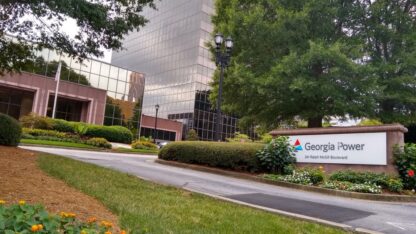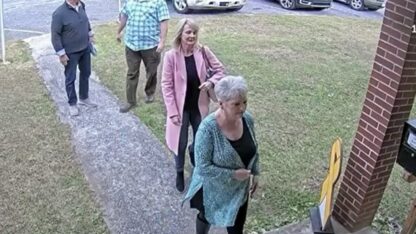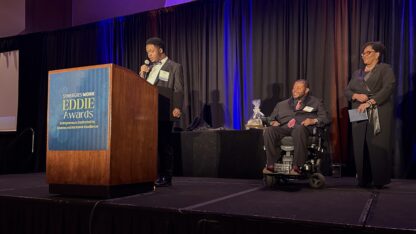Strength Of The Region’s Workforce Could Depend on Adult Education

State officials hope to add 250,000 more post-secondary graduates to the workforce in the next several years to react to more openings.
Gretchen Ertl / Associated Press
Recently, Atlanta has attracted big companies to the region. Mercedes-Benz and Porsche have relocated their U.S. headquarters to the area. Each company brought hundreds of jobs with it. Metro Atlanta is also a contender for a second Amazon headquarters.
However, to keep attracting big businesses, the region needs more qualified workers. To do that, the state wants to increase the number of employees who have some type of college training. Officials hope to add 250,000 more post-secondary graduates to the workforce in the next several years.
“If you look at the number of kids in the K-12 pipeline, there aren’t that many,” said Dana Rickman, director of policy and research at the Georgia Partnership for Excellence in Education. Rickman spoke at a media symposium in January. “We won’t get there if we just rely on high school graduates. We have to look at our adult learners and our adult population.”
A recent workforce study found one in six workers in Georgia is ‘low-literate,’ or can’t read well. That prompted state leaders to form a Literacy Commission. It’s co-chaired by Georgia First Lady Sandra Deal.
“It’s really heartbreaking to see parents who can’t get jobs, or who have to take minimal wage jobs because they can’t read and write,” Deal said.
That’s why the Technical College System of Georgia offers free adult literacy classes.
“There are many individuals in Georgia that are on a second or third-grade reading level when they come to us,” said TCSG chancellor Gretchen Corbin. “That’s a quality of life issue. It’s a safety issue.”
Corbin said once students improve their reading skills, they can often transfer into the technical college system and learn skills they need to launch a career.
“When you take an individual and you teach them to read — whether it’s reading a manual to be able to work, or whether it’s reading the paper for knowledge, or reading a book for their children, you change a life.”
Business leaders, educators and lawmakers all know that strengthening Georgia’s workforce could depend on the region’s ability to educate adults. They also know it’s not always easy for an adult to go back to school.
So, they’ve enacted programs like Go Back, Move Ahead, which give adults college credit for military or other work experience.
TSCG’s accelerating opportunity initiative lets students work toward a General Education Diploma (GED) and a certificate program at the same time. The idea is to give students a chance to earn multiple credentials so they can enter the workforce easily.
Atlanta voters are preparing to elect a new mayor and replace nearly half the City Council. In this moment of transition, WABE is exploring “The Future of Atlanta.”








